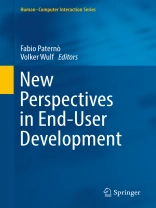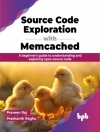This book provides an in-depth insight into the emerging paradigm of End-User Development (EUD), discussing the diversity and potential for creating effective environments for end users. Containing a unique set of contributions from a number of international researchers and institutes, many relevant issues are discussed and solutions proposed, making important aspects of end-user development research available to a broader audience.
Most people are familiar with the basic functionality and interfaces of computers. However, developing new or modified applications that can effectively support users’ goals still requires considerable programming expertise that cannot be expected of everyone. One of the fundamental challenges that lie ahead is the development of environments that enable users with little or no programming experience to develop and modify their own applications. The ultimate goal is to empower people to flexibly employ and personalise advanced inform
ation and communication technologies.Table des matières
Making End User Development More Natural.- End-User Development in Practice: A new paradigm.- A Design Space for End User Development in the Time of the Internet of Things.- Revisiting and Broadening the Meta-Design Framework for End-User Development.- A three-layer meta-design model for addressing domain-specific customization.- End-User Developers – What are they Like?.- Malleability in the hands of end-users.- EUD and infrastructuring – sustaining organizational innovation capabilities.- EUD survival ‘in the wild’: evaluation challenges for field deployments and how to address them.- Toward Theory-Based End-User Software Engineering.- Semiotic Engineering: A cohering theory to connect EUD with HCI, CMC and more.- End-User Development and Social Big Data – Towards Tailorable Situation Assessment with Social Media.- End-User Development and Learning in Second Life: The Evolving Artifacts Framework with Application.- EUD for Serious Games.- Integrating end users in early ideation and prototyping: lessons from an experience in augmenting physical objects.- An End-User Development Framework to Support Quantified Self in Sport Teams.












